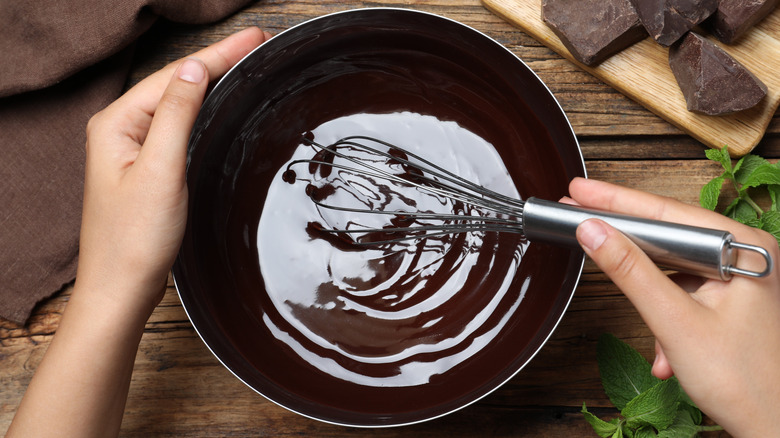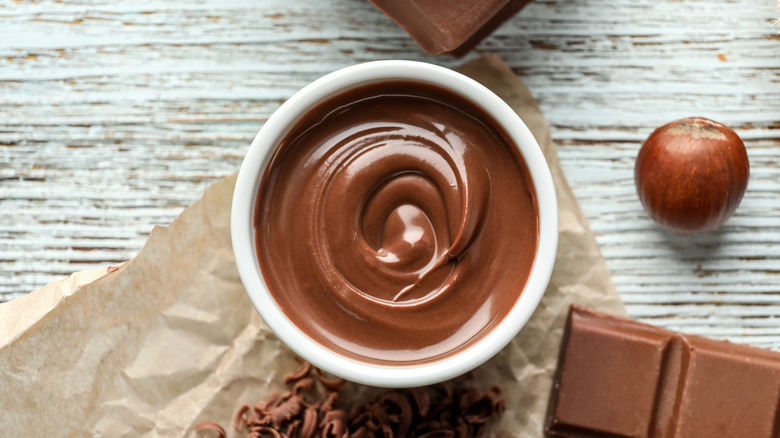Why It's Important To Fully Melt Your Chocolate
Chocolate, when used correctly, can deliciously transform just about any baked good. From boring oatmeal muffins to lazy-day microwave mug cakes, add a bit of chocolate and you're likely to be pleasantly surprised. However, as with all things used in a process as precise as baking, chocolate can be a tricky ingredient with which to work. From burning chocolate to not using one with the right percentage of cocoa or using chocolate bars of bad quality (or ones filled with stabilizers), a seemingly tiny chocolate error can have you scratching your head trying to figure out where exactly you went wrong.
Now, pastry chef Marc Aumont of Kreuther Handcrafted Chocolate tells Food & Wine that you might not even be melting your chocolate right. Heating chocolate until it just about melts doesn't cut it. "Chocolate needs to be melted completely — and be hot," Aumont told the outlet. If you're not melting your chocolate fully, be prepared for the silky liquid to not blend into your batter smoothly, turning your end products into heavy bakes that "will not reach their full expression," per Aumont.
Not all chocolate melts the same
This may come as a surprise, but not all chocolates melt the same, and even when a type of chocolate does melt, it doesn't necessarily mean that it's the kind of melted chocolate you're going for. Chocolate chips, for example, are filled with stabilizers and preservatives that, though great for leaving puddles of chocolates in a bake, are not designed for being melted separately (via Sally's Baking Addiction). Baking chocolate, though, is a specific variety of chocolate that is made especially for baking, and thus melts better.
Once you're ready to begin melting your chocolate, BBC Good Food stresses the importance of chopping the chocolate first. Not only will the chocolate melt quicker, but it will melt more uniformly, too. As a general rule of thumb, the higher the fat and cocoa butter percentage chocolate has, the quicker it will melt. This means that dark chocolate will melt quicker, whereas sugar-dense milk and white chocolates are at the risk of burning quicker. Be careful, though, as some dark chocolate varieties may not be as dark as you think.
It's also best to adopt a "low and slow" method when melting chocolate, meaning you're melting it on a low heat with a slow melting time (via Taste of Home). It's easier to work with a chocolate that is yet to fully melt than trying to revive a batch that is already burnt.

